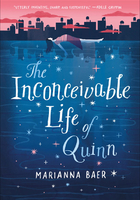I have an idea that some men are born out of their due place.Accident has cast them amid certain surroundings, but they have always a nostalgia for a home they know not.They are strangers in their birthplace, and the leafy lanes they have known from childhood or the populous streets in which they have played, remain but a place of passage.They may spend their whole lives aliens among their kindred and remain aloof among the only scenes they have ever known.Perhaps it is this sense of strangeness that sends men far and wide in the search for something permanent, to which they may attach themselves.Perhaps some deeprooted atavism urges the wanderer back to lands which his ancestors left in the dim beginnings of history.Sometimes a man hits upon a place to which he mysteriously feels that he belongs.Here is the home he sought, and he will settle amid scenes that he has never seen before, among men he has never known, as though they were familiar to him from his birth. Here at last he finds rest.
I told Tiare the story of a man I had known at St.Thomas's Hospital.He was a Jew named Abraham, a blond, rather stout young man, shy and very unassuming; but he had remarkable gifts.He entered the hospital with a scholarship, and during the five years of the curriculum gained every prize that was open to him.He was made house-physician and house-surgeon.His brilliance was allowed by all.Finally he was elected to a position on the staff, and his career was assured.So far as human things can be predicted, it was certain that he would rise to the greatest heights of his profession.Honours and wealth awaited him.Before he entered upon his new duties he wished to take a holiday, and, having no private means, he went as surgeon on a tramp steamer to the Levant.It did not generally carry a doctor, but one of the senior surgeons at the hospital knew a director of the line, and Abraham was taken as a favour.
In a few weeks the authorities received his resignation of the coveted position on the staff.It created profound astonishment, and wild rumours were current.Whenever a man does anything unexpected, his fellows ascribe it to the most discreditable motives.But there was a man readyto step into Abraham's shoes, and Abraham was forgotten.Nothing more was heard of him.He vanished.
It was perhaps ten years later that one morning on board ship, about to land at Alexandria, I was bidden to line up with the other passengers for the doctor's examination.The doctor was a stout man in shabby clothes, and when he took off his hat I noticed that he was very bald.I had an idea that I had seen him before. Suddenly I remembered.
"Abraham," I said.
He turned to me with a puzzled look, and then, recognizing me, seized my hand.After expressions of surprise on either side, hearing that I meant to spend the night in Alexandria, he asked me to dine with him at the English Club.When we met again I declared my astonishment at finding him there.It was a very modest position that he occupied, and there was about him an air of straitened circumstance.Then he told me his story.When he set out on his holiday in the Mediterranean he had every intention of returning to London and his appointment at St.Thomas's.One morning the tramp docked at Alexandria, and from the deck he looked at the city, white in the sunlight, and the crowd on the wharf; he saw the natives in their shabby gabardines, the blacks from the Soudan, the noisy throng of Greeks and Italians, the grave Turks in tarbooshes, the sunshine and the blue sky; and something happened to him.He could not describe it.It was like a thunder-clap, he said, and then, dissatisfied with this, he said it was like a revelation.Something seemed to twist his heart, and suddenly he felt an exultation, a sense of wonderful freedom.He felt himself at home, and he made up his mind there and then, in a minute, that he would live the rest of his life in Alexandria.He had no great difficulty in leaving the ship, and in twenty-four hours, with all his belongings, he was on shore.















